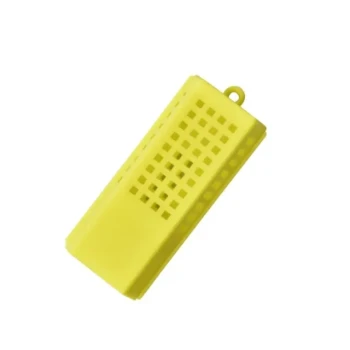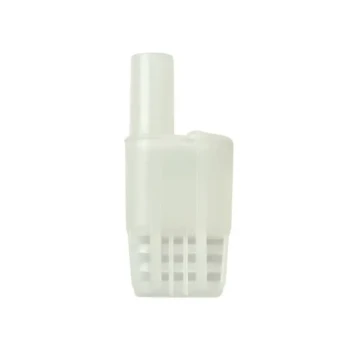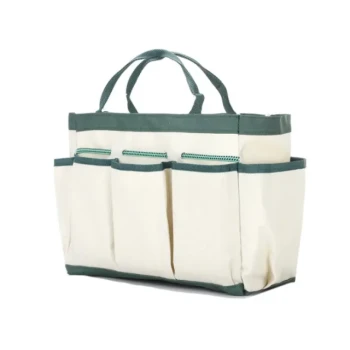Beekeeping nuc boxes are essential tools for both novice and experienced beekeepers, offering versatile solutions for queen rearing, colony management, and bee transportation. Our product range includes Twin Queen Styrofoam Honey Bee Nucs for efficient breeding, Automatic Heat Preservation 6 Frame Pro Nuc Box for optimal hive conditions, and Styrofoam Mini Mating Nuc Box for compact and insulated queen mating. For safe transport, we offer Plastic Transporting Bee Packages and Nuc Boxes, while 5 Frame Langstroth Poly Nuc and 4 Frame Plastic Nuc Boxes provide lightweight and durable options for hive expansion. Additionally, 5 Frame Wooden Nuc Box and Portable Bee Mating Hive Boxes cater to traditional and portable beekeeping needs. These nuc boxes are designed to enhance colony health, improve pollination efficiency, and simplify hive management.
Toggle Categories
Get Instant Support
Choose your preferred way to connect with our team
-
Get Free Quote Fill out form for detailed pricing
-
Send Email Detailed inquiry support
-
WhatsApp Quick mobile chat
Response Time
Within 8 hours on working days, 24 hours on holidays
beekeeping nuc box

5 Frame Wooden Nuc Box for Beekeeping
Item Number: NUC-1

5 Frame Langstroth Poly Nuc Corrugated Plastic Nuc Boxes
Item Number: NUC-3

Plastic Transporting Bee Packages and Nuc Boxes for Beekeeping
Item Number: NUC-4

Portable Bee Mating Hive Boxes Mini Mating Nucs 8 Frames for Queen Rearing
Item Number: NUC-6

Twin Queen Styrofoam Honey Bee Nucs Mating and Breeding Box
Item Number: NUC-7

Automatic Heat Preservation 6 Frame Pro Nuc Box for Honey Bee Queen Mating
Item Number: NUC-8

4 Frame Plastic Nuc Boxes for Beekeeping Bee Nuc Box
Item Number: NUC-9

Professional Multi-Compartment Queen Cage with Sliding Lid
Item Number: QC-4

Multi-Function Queen Roller Cage and Catcher
Item Number: QC-13

Nicot Queen Rearing Kit for Beekeeping and Grafting in Nicot System
Item Number: QRK-1
Why Choose Our Beekeeping Nuc Boxes?
Our beekeeping nuc boxes are meticulously designed to meet the diverse needs of beekeepers, ensuring optimal conditions for queen rearing, colony expansion, and safe bee transportation. Here’s a detailed look at the features, principles, and advantages of our products:
Features
- Superior Insulation: Products like the Twin Queen Styrofoam Honey Bee Nucs and Styrofoam Mini Mating Nuc Box are crafted from high-quality styrofoam, providing excellent insulation to maintain consistent temperature and humidity levels, crucial for successful queen mating and brood rearing.
- Automatic Heat Preservation: The Automatic Heat Preservation 6 Frame Pro Nuc Box incorporates advanced heat retention technology, ensuring a stable environment for bees even in fluctuating weather conditions.
- Durability and Lightweight Design: Our 5 Frame Langstroth Poly Nuc and 4 Frame Plastic Nuc Boxes are made from durable, lightweight materials like corrugated plastic, making them easy to transport and stack while maintaining structural integrity.
- Versatility: The Plastic Transporting Bee Packages and Nuc Boxes feature ventilated designs and integrated feeders, making them ideal for long-distance bee transportation. Meanwhile, the Portable Bee Mating Hive Boxes offer a compact and lightweight solution for on-the-go beekeeping.
- Traditional Craftsmanship: For those who prefer traditional materials, the 5 Frame Wooden Nuc Box is crafted from durable China fir, offering natural insulation and a classic aesthetic.
Principles
Nuc boxes are designed to create a controlled environment for small bee colonies, known as nucleus colonies. These colonies are essential for:
- Queen Rearing: The small size of nuc boxes allows beekeepers to raise queens in a controlled setting, ensuring strong genetic lines and healthy colonies.
- Comb Drawing: Nuc boxes are used to draw out comb, which can later be transferred to larger hives or mating nucs, facilitating colony expansion.
- Colony Management: By housing smaller colonies, beekeepers can better manage hive health, monitor brood development, and prevent swarming.
Advantages
- Headstart for New Beekeepers: Starting with a nuc provides new beekeepers with a fully functional colony, including drawn comb, brood, pollen, honey, and an actively laying queen. This allows the colony to begin producing honey and expanding immediately.
- Enhanced Brood Rearing: The small size of nuc boxes enables bees to better regulate humidity and temperature, creating an ideal environment for brood rearing.
- Easy Transport: Lightweight and stackable designs make nuc boxes perfect for transporting bees, whether for selling small colonies or relocating hives.
- Apiary Expansion: Nuc boxes are invaluable for starting new apiaries or expanding existing ones, allowing beekeepers to grow their operations efficiently.
- Customizable Solutions: Our nuc boxes are designed to meet the specific needs of beekeepers, offering options for different frame sizes, materials, and features to suit various beekeeping practices.
Why Choose Us?
We are committed to providing high-quality, innovative beekeeping solutions that cater to the needs of beekeepers worldwide. Our products are designed with precision, incorporating the latest advancements in beekeeping technology while maintaining a focus on sustainability and durability. Whether you’re a hobbyist or a commercial beekeeper, our nuc boxes offer the perfect balance of functionality and convenience.
Ready to enhance your beekeeping experience? Explore our full range of nuc boxes and discover the perfect solution for your apiary. Have questions or need a customized product? Contact us today to learn more about our offerings and how we can support your beekeeping journey.
FAQ
What Is A Beekeeping Nuc Box?
What Are The Applications Of A Beekeeping Nuc Box?
What Are The Main Types Of Beekeeping Nuc Boxes?
What Is The Principle Behind Using A Beekeeping Nuc Box?
What Are The Advantages Of Using A Beekeeping Nuc Box?
What Features Should I Look For In A Beekeeping Nuc Box?
REQUEST A QUOTE
Our professional team will reply to you within one business day. Please feel free to contact us!
Related Articles

The Architect's Dilemma: How a Nuc Box Solves a Honeybee Swarm's Housing Crisis
A nuc box isn't just a container; it's a solution that exploits a bee swarm's instinctual, high-stakes search for the perfect home.

The Signal in the Swarm: How a Single Dot of Color Tames the Complexity of a Beehive
A simple color code transforms hive management from stressful guesswork to data-driven strategy by revealing a queen's age and presence instantly.

Why Your Bee Boxes Don't Match: The Secret to Flawless Apiary Scaling
Struggling with inconsistent hive components that slow your apiary's growth? Discover the root cause and how to achieve perfect standardization.

The 6 5/8-Inch Decision: The Engineering and Psychology of Bee Box Dimensions
Discover why the 6 5/8-inch depth of a medium bee box is a critical strategic decision affecting beekeeper health, efficiency, and apiary management.

Beyond the Solid Floor: A Systems Approach to Hive Ventilation and Pest Control
Discover how a screened bottom board is a strategic system upgrade, not just a component, for managing Varroa mites and hive moisture.

Deep Bee Boxes: Why "Standard" Dimensions Are Critical for Beekeeping Success (and Your Bottom Line)
Understanding standard deep bee box dimensions is crucial for hive health and operational efficiency. Learn how the right equipment impacts commercial apiaries.

The Unseen Tax: Why Apiary Pest Control is a System, Not a Task
Pest control in commercial apiaries isn't about chemicals, but a system of physical barriers and controls to protect your investment.

The Unseen Architecture: Why Modern Apiaries Bet on Plastic Frames
Plastic beehive frames are more than a convenience; they are an engineering choice for systemic stability, mitigating risks from heat and extraction.

Why Your Plastic Frames Are Warping—And Costing You More Than You Think
Discover the hidden physical reason your plastic beehive frames fail during honey extraction and how durable wooden frames can save your apiary time and money.

Beyond the Scrape: The Silent Killer in Your Beehives and How to Stop It
Uncover why 'clean' hives fail. Learn the two-step sterilization process to stop colony loss and boost apiary profitability.

The Lid as a Lever: How Nuc Box Design Drives Colony Success
Discover why the integrated feeder in a nuc box is a strategic design for rapid growth, not just a convenience. A deep dive into colony psychology.

Heat, Honey, and Haste: The Physics of Preserving Liquid Gold
Heating honey reduces viscosity but risks destroying its value. Gentle thermal management is key to preserving quality from the jar to the drum.

The Veil is a Cockpit: A Systems Approach to Beekeeper Focus and Safety
Choosing a beekeeping veil is a critical trade-off between visibility and security that directly impacts a beekeeper's focus and decision-making.

The Unclimbable Fortress: A Systems Approach to Protecting Hives from Ants
Learn why physical barriers, not deterrents, are the key to ant-proofing beehives. A systematic approach for commercial apiaries.

The Unseen Enemy: Why Mold on Beehive Frames Is a Symptom, Not the Disease
Mold on beehive frames signals a deeper moisture issue. Learn the system for cleaning, drying, and preventing it to ensure long-term hive health.

The Material Calculus: A Beekeeper's Choice Between Nature and Durability
A deep dive into the wood vs. plastic beehive trade-off, analyzing the decision from a systems-thinking and psychological perspective.

The Signal in the Swarm: Queen Bee Marking as a System for Clarity
Marking a queen bee isn't just about finding her; it's a data system that transforms hive management from chaotic searching to rapid assessment.

The Tyranny of Small Numbers: How a Simple Percentage Defeats the Varroa Destructor
Discover why the Varroa mite infestation percentage, not a raw count, is the critical metric for hive survival and data-driven beekeeping.

Beyond the Thermometer: The Systems Integrity of a Winter Beehive
Opening a beehive below 50°F (10°C) isn't just a temperature risk; it shatters the colony's delicate thermal system, risking brood survival.

Your Queen Insemination Success Is a Numbers Game—Here’s How to Win
Struggling with low queen insemination rates? The problem isn't your skill—it's the math. Learn the root cause and how to fix it.


